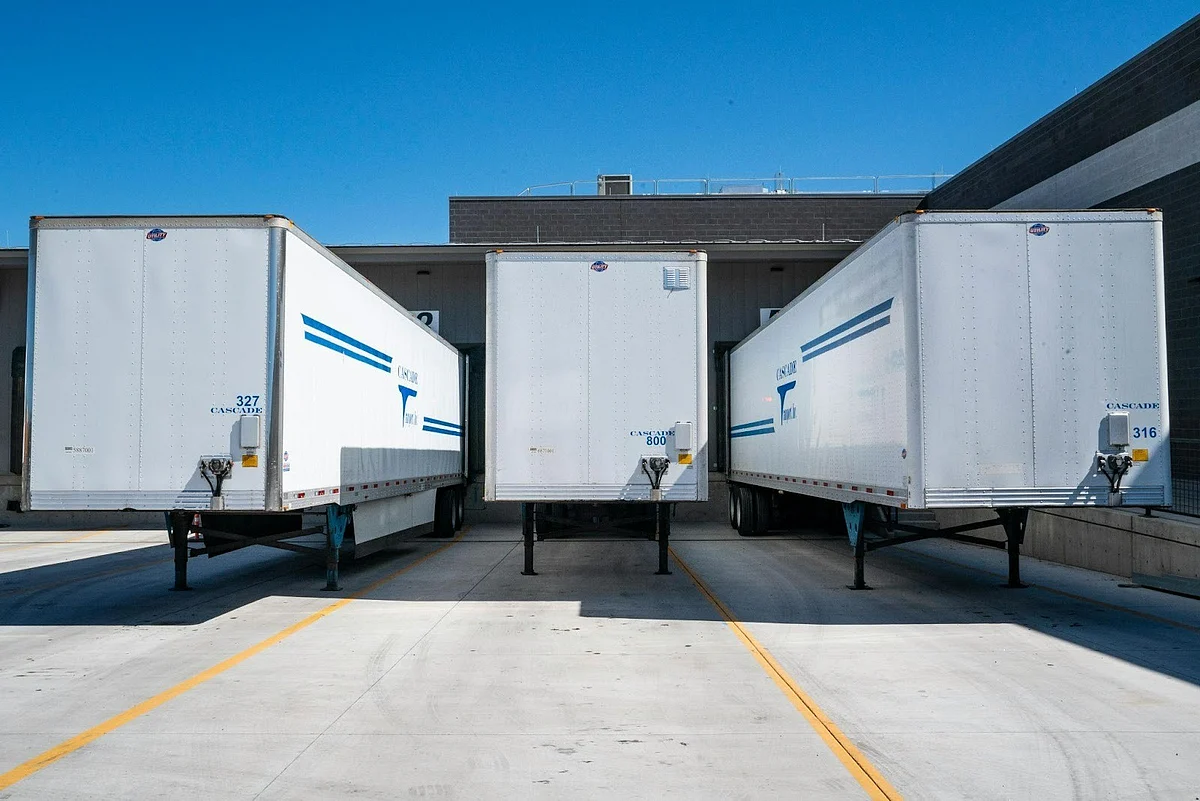Technology
Businesses Embrace AI to Transform Fleet Management Efficiency

Businesses across the transportation sector are increasingly integrating Artificial Intelligence (AI) into fleet management systems, revolutionizing operations and enhancing cost control. This transformation is driven by rising customer expectations, which demand faster deliveries and greater service reliability. As technology evolves, companies are recognizing the necessity of smarter, more efficient fleet management solutions.
The Role of AI in Fleet Operations
The enthusiasm surrounding AI is palpable, with many organizations now viewing it as an essential tool rather than a luxury. AI technologies are being woven into everyday operations, assisting drivers, managers, and decision-makers alike. These systems can perform tasks that previously required extensive manpower, such as monitoring routes, analyzing driving patterns, and identifying potential risks. This shift enables fleets to gain more control over their performance and costs.
One significant advantage of AI lies in its ability to optimize routes effectively. By analyzing traffic patterns, weather conditions, and road statuses, AI can determine the most efficient path for each vehicle. This not only minimizes wasted time and fuel but also helps drivers maintain focus and reduces stress on the road. Fleet managers benefit from real-time visibility into routes, allowing them to adjust plans as necessary, which ultimately leads to smoother operations.
Enhancing Maintenance and Cost Control
Breakdowns can severely disrupt operations, leading to delays and increased costs. AI’s predictive maintenance capabilities help mitigate these challenges by continuously monitoring vehicle health and tracking engine performance. By detecting unusual patterns early, teams can address potential issues before they escalate. This proactive approach not only reduces repair costs but also keeps vehicles in optimal condition, enhancing safety for drivers and minimizing downtime.
Fuel expenses represent one of the largest costs for fleet operations. AI tools can analyze fuel consumption patterns, pinpointing instances of waste and inefficient driving habits. Many systems provide coaching tips to drivers, encouraging smoother acceleration and reduced idle times. These small adjustments contribute to significant savings over time, allowing businesses to manage costs effectively without sacrificing performance.
AI also plays a crucial role in supporting drivers, who face numerous challenges such as heavy traffic and tight schedules. Real-time alerts help drivers stay aware of potential risks, while systems that monitor driving behavior can identify areas for improvement. This supportive approach fosters a healthier work environment, emphasizing safety and well-being rather than criticism.
For fleet managers, access to clear and timely information is essential. AI systems deliver comprehensive dashboards featuring key metrics such as routes, fuel levels, and delivery progress. This visibility aids in quick decision-making, allowing managers to identify performance trends and address issues proactively. By converting raw data into actionable insights, AI helps maintain operational efficiency.
The future of mobility is poised for significant advancements, with AI expected to play an even larger role in shaping fleet management. Companies that adapt to these changes will likely gain a competitive edge, remaining agile in a rapidly evolving landscape. Importantly, the integration of AI does not aim to replace human roles; instead, it enhances collaboration between technology and human judgment. Managers continue to lead, and drivers remain at the controls, with AI serving as a tool for improving every aspect of fleet operations.
As businesses seek to streamline their fleet management processes, the adoption of AI emerges as a strategic path forward. This technology not only enhances performance and clarity but also empowers companies to navigate the complexities of modern transportation with confidence. In doing so, it sets the stage for a future where fleets operate with purpose and efficiency.
-

 Technology5 months ago
Technology5 months agoDiscover the Top 10 Calorie Counting Apps of 2025
-

 Health3 months ago
Health3 months agoBella Hadid Shares Health Update After Treatment for Lyme Disease
-

 Health3 months ago
Health3 months agoErin Bates Shares Recovery Update Following Sepsis Complications
-

 Technology4 months ago
Technology4 months agoDiscover How to Reverse Image Search Using ChatGPT Effortlessly
-

 Technology1 month ago
Technology1 month agoDiscover 2025’s Top GPUs for Exceptional 4K Gaming Performance
-

 Technology3 months ago
Technology3 months agoElectric Moto Influencer Surronster Arrested in Tijuana
-

 Technology5 months ago
Technology5 months agoMeta Initiates $60B AI Data Center Expansion, Starting in Ohio
-

 Technology5 months ago
Technology5 months agoRecovering a Suspended TikTok Account: A Step-by-Step Guide
-

 Health4 months ago
Health4 months agoTested: Rab Firewall Mountain Jacket Survives Harsh Conditions
-

 Lifestyle5 months ago
Lifestyle5 months agoBelton Family Reunites After Daughter Survives Hill Country Floods
-

 Technology4 months ago
Technology4 months agoHarmonic Launches AI Chatbot App to Transform Mathematical Reasoning
-

 Health3 months ago
Health3 months agoAnalysts Project Stronger Growth for Apple’s iPhone 17 Lineup





















